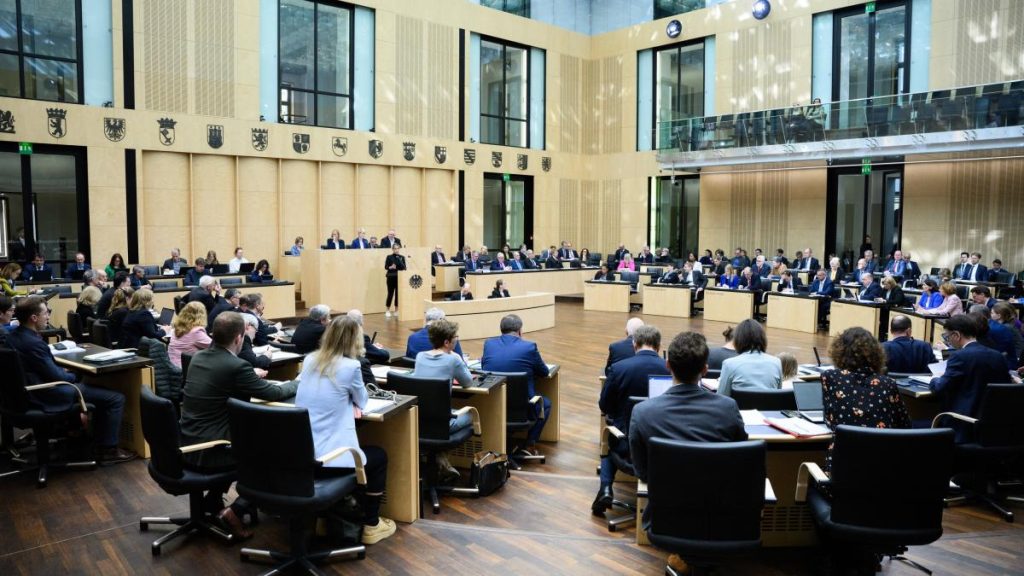The Bundesrat, Germany’s upper house of parliament, met in Berlin on Friday to approve several new laws, including the controversial payment card for asylum seekers. The approval also paves the way for making USB-C the standard charging cable by the end of the year. The Bundesrat has been hesitant with some of the government’s proposals in the past, but this time, there was no additional work for the mediation committee. The Solar package legislation was quickly passed, with other decisions including the approval of the payment card for asylum seekers. This card will provide asylum seekers with a portion of their state benefits as credit on the card to reduce cash payments and prevent misuse.
In addition to the payment card, the Bundesrat also approved the establishment of a hydrogen core network in Germany under changes to the Energy Industry Act. This network will be privately financed with state backing and will include 9700 kilometers of pipelines, mostly repurposed from the current gas network. The hydrogen core network aims to connect major consumption and production regions for hydrogen and is expected to be operational between 2025 and 2032, with an estimated investment of around €20 billion. The goal is to create a more sustainable energy infrastructure for the future.
Another important decision made by the Bundesrat was the mandate for standardized charging cables for all mobile phones, tablets, and gaming consoles in Germany by the end of the year. This move, under changes to the Radio Equipment Act, will make USB-C the standard for charging smartphones, cameras, headphones, e-readers, and navigation devices, with laptops following suit in 2026. This standardization is intended to ease financial burdens on consumers and reduce electronic waste by allowing devices to be sold without new chargers.
The Digital Services Act, aimed at ensuring transparency and fairness among providers of digital mediation services, was also approved by the Bundesrat without any issues. This legislation establishes a coordinating body within the Federal Network Agency to oversee digital service providers and enforcement of the EU’s Digital Services Act. Users can address complaints directly to the coordination center, which also includes measures to protect minors online and monitor compliance by the Federal Center for Child and Youth Media Protection.
The Bundesrat also called on the federal government to develop a national strategy for improved drug supply, particularly for children and adolescents. The resolution passed by the Länder urges for relaxed regulations on the import and storage of essential medications and greater flexibility for pharmacies in the exchange of medicines. Pharmacies should be able to produce and distribute fever medicines more easily to meet the increasing demand, especially in response to shortages experienced during the winter of 2022/2023. This initiative aims to address the scarcity of medications for children and youth during critical times and ensure timely and adequate supply.


